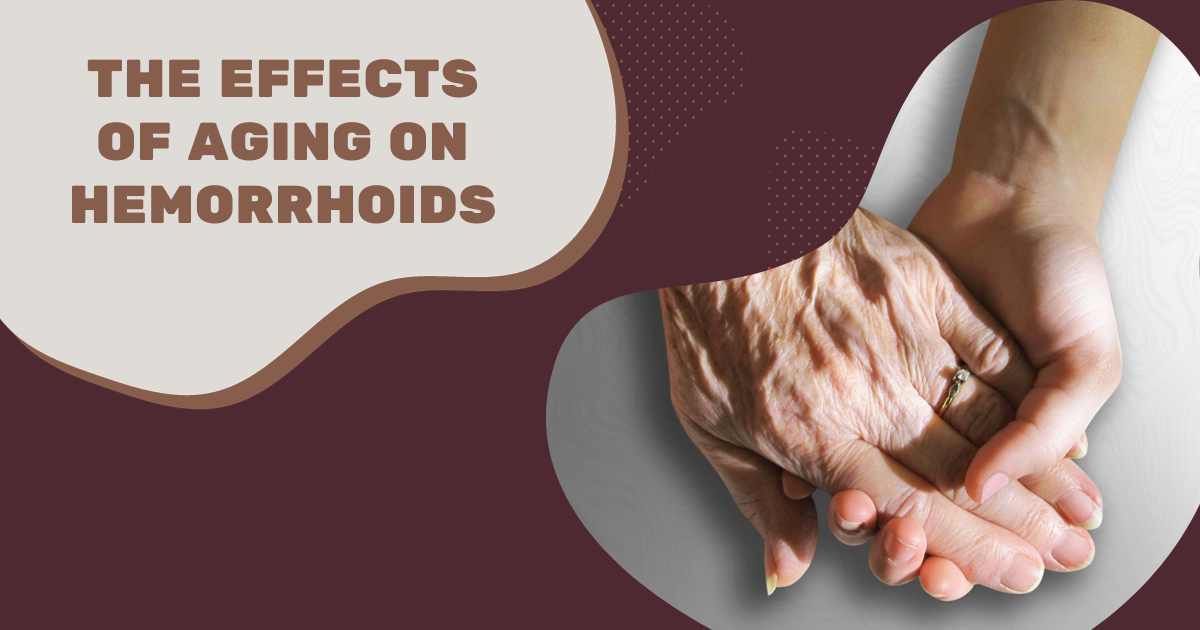The Effects of Aging on Hemorrhoids
Ageing is an unavoidable aspect of life, and it brings with it a slew of physical changes. While many aspects of ageing are well understood, the effects on problems such as hemorrhoids are sometimes ignored. In this post, we will look at the relationship between ageing and hemorrhoids, and how it can affect the development and management of this prevalent medical condition.
Hemorrhoids or Piles: A Quick Overview
Before delving into the impacts of aging, it’s critical to first grasp what hemorrhoids are. Hemorrhoids, often known as piles, are bulging veins that occur around the rectum or in the anus. They can cause discomfort, agony, and bleeding and are classified as internal or external.
The Impact of Aging on Hemorrhoids
Several factors can contribute to the development and worsening of hemorrhoids as we age:
Tissue Fractures
The tissues that support the veins in the rectal and anal areas may deteriorate with ageing. This weakening can render the veins more susceptible to edema and hemorrhoids.
Blood Flow Reduction
As we age, our circulatory system gradually gets less efficient. This decreased blood flow can result in the production of blood clots in the veins, which can contribute to the development of hemorrhoids.
Constriction During Bowel Movements
Constipation is more common in elderly people, and it frequently causes straining during bowel motions. This straining can put pressure on the rectal and anal veins, potentially leading to or exacerbating hemorrhoids.
Age-Related Risk Factors
A number of age-related factors can increase the likelihood of developing hemorrhoids:
- Sedentary Lifestyle: People tend to become less active as they age, which can contribute to impaired circulation and an increased risk of hemorrhoids.
- Changes in Diet: As people get older, their fiber intake decreases, which can lead to constipation and straining during bowel movements.
- Chronic Illness: Because of their impact on circulation and bowel function, conditions such as diabetes and heart disease, which become more common with age, might contribute to hemorrhoid development.
Preventive Measures for Aging Adults
While ageing increases the likelihood of hemorrhoids, there are activities older people can do to prevent or manage them:
- Changes in Diet: Eating a high-fiber diet can help encourage regular bowel movements and lower the risk of constipation.
- Staying hydrated will soften feces and make them easier to pass.
- Physical Activity: Regular exercise can help improve circulation and lower the risk of hemorrhoids.
- Hygiene: Maintaining proper anal hygiene might help to reduce the irritation and discomfort caused by hemorrhoids.
Ageing might cause changes in the body that make people more prone to hemorrhoids. Weakening tissues, decreased blood flow, and age-related variables such as sedentary lifestyle and nutritional changes can all contribute. However, older persons can effectively manage and lessen the effects of hemorrhoids on their quality of life by taking preventive measures and getting medical assistance when necessary. Understanding the connection between ageing and hemorrhoids is the first step towards ageing in comfort and well-being.

